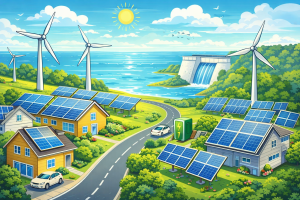Jakarta – The Ministry of Energy and Mineral Resources (MEMR) has revealed that in 2025, the use of non-subsidised fuel is expected to surge by nearly 19 per cent, while Pertalite (RON 90) is projected to continue to decline. This trend will have a direct impact on state budget savings of up to tens of trillions of rupiah.
Director General of Oil and Gas at the Ministry of Energy and Mineral Resources, Laode Sulaeman, during a hearing with the House of Representatives broadcast live on Wednesday, October 1, emphasised that this change is closely related to the policy of tightening the distribution of Pertalite. “There is an efficiency of around 25 per cent. This means that the state has managed to save Rp12.6 trillion (USD 760 million),” explained Laode.
“With the QR Code system at Pertamina gas stations, Pertalite consumption can be better controlled. The public has also begun to switch to non-subsidised fuel, which is of better quality,” said Laode.
As of July 2025, daily sales of Pertalite were recorded at 76,000 kilolitres per day, down 5.1 per cent from the 2024 figure of 81,000 kilolitres. In contrast, sales of non-subsidised gasoline—ranging from RON 92, RON 95, to RON 98—increased significantly, by nearly 19 per cent compared to last year.
This change has reduced the Pertalite compensation burden. The government only needs to prepare Rp36.3 trillion for 2025, which is significantly lower than the Rp48.9 trillion allocated for 2024.
Private sector seizes market opportunities
The growth in non-subsidised gasoline consumption also provides more opportunities for private companies. Pertamina Patra Niaga continues to lead with a projected 14 per cent increase in sales. Still, private players such as Shell, Vivo, ExxonMobil, AKR, and BP have recorded aggressive growth of up to 91 per cent, nearly double that of the previous year.
To maintain supply, the government has permitted private companies to import fuel with an additional limit of up to 10 per cent of the 2024 target. As a result, private imports have now reached almost 100 per cent of the quota. Pertamina itself still has a remaining import quota of 31 per cent, or 6.81 million kiloliters, which can also be distributed to private gas stations.
The collaboration between Pertamina and private companies has begun to materialise in the field. The first fuel cargo resulting from this business-to-business (B2B) collaboration arrived on September 24, 2025, followed by a second cargo on October 2, 2025. As a result of this collaboration, Pertamina has distributed an additional 40,000 barrels to private gas stations.
“We want a win-win solution. Supply remains secure, the public is not worried, and the business climate is also healthy,” Laode said. (Hartatik)
Banner photo: Image generated by OpenAI’s DALL·E via ChatGPT (2025)















